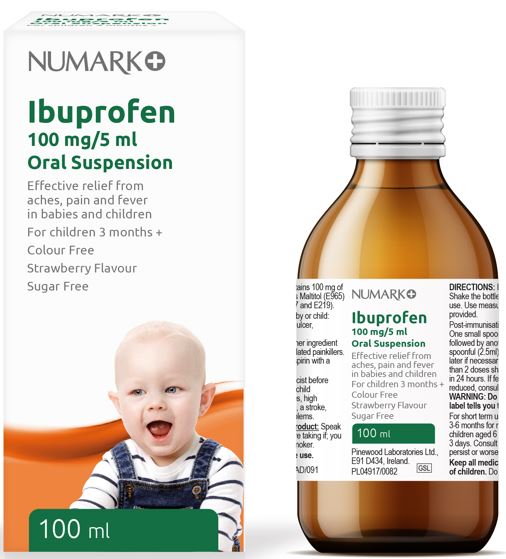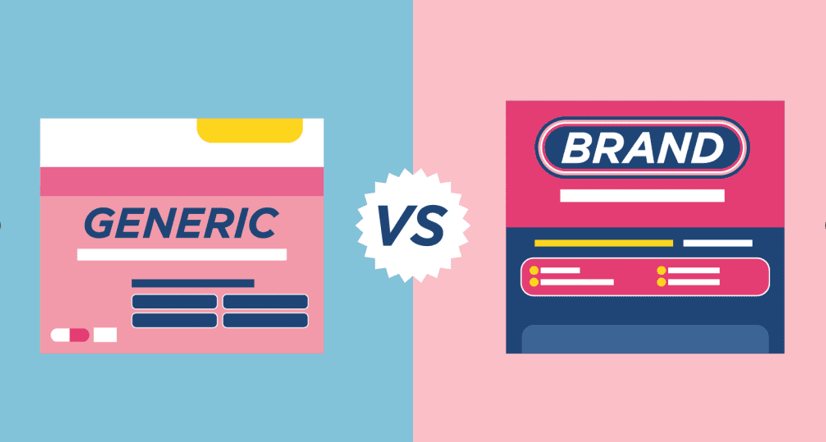Generic vs Brand
Every medicine has an approved generic name. If it is made by several companies, each will also give the medicine a brand (trade) name. So, one medicine may have a generic name and also have one or more brand names. This can sometimes lead to confusion.
What are generic medicines?
Each medicine has an approved name called the generic name. A group of medicines that have similar actions often have similar-sounding generic names. For example, phenoxymethylpenicillin, ampicillin, flucloxacillin and amoxicillin are all in one particular group of antibiotic medicines.
What are brand name medicines?
Many medicines also have one (or more) brand names. This is chosen by the company that makes it. Several companies may make the same generic medicine, each with their own brand name. The name is often chosen to be memorable for advertising, or to be easier to say or spell than the generic name. For example, paracetamol is a generic name. There are several companies that make this with brand names such as Panadol, Calpol etc.
The brand name is usually written most clearly on any packaging. However, you will always see the generic name written somewhere on the packet (often in small print). Some medicines only have the generic name on the packet.
The colour, size, shape, etc, of brands of the same medicine may vary depending on which company makes it however, the medicine will be the same if the generic name is the same as before. Not to be confused with brand name medicines Numark has their own selection of generic medicines with the Numark brand logo clearly on the packaging. The Numark own brand range consists of over 350 community pharmacy focused generic products, covering core pharmacy categories.

Whether or not a customer buys a branded or generic product is purely a matter of choice for the customer, there is no right or wrong decision. Be careful when advising a customer about comparable products, two products that have the same active ingredient might be different shaped tablets and so not the same to swallow or might have different tastes and so one is more favourable to a customer than another. If you mean has the same active ingredients, or will have the same effect, say exactly that.
Some customers will want the cheapest appropriate product and will see buying a brand as a waste of money. However, some research has suggested that if a customer believes a branded product is superior, they are more likely to believe that it has worked better or been more effective. Although less common with medicines, some customers will simply want the branded product because they can afford it. Be careful not to imply that a customer that buys a brand is a bit silly because they are wasting their money, or that a customer that buys a generic does so because they need to economise!
If a customer asks for a medication by brand, once you have established that it is appropriate to sell the product, you could ask the customer if it is the branded version that they particularly want. If they say yes, just sell it to them. They might want to know why you are asking and then you have the opportunity to advise that other options are available. Be positive about both options, you might say something like, ‘we do have brand xyz which is £1.25 and very popular, and we also have this one which has the same active ingredients and is great value at 99p.’ If the customer asks what you think, follow the guidance from your manager, do they prefer you to sell branded products or own brand products? Remember, if you sell an own brand (Numark) product, the customer will be more likely to return to you if they need more, compared to branded products some of which can even be purchased from the local petrol station.

